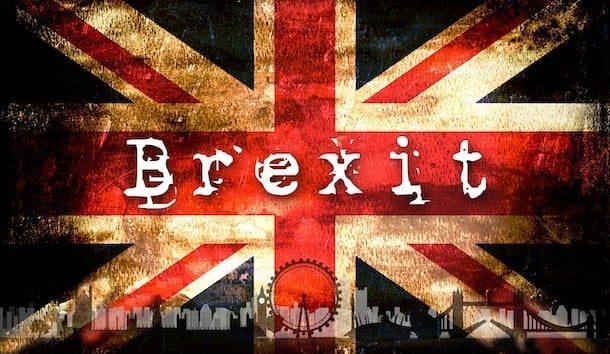The British election campaign has been conducted with all the duplicity that characterizes the higher echelons of the State. The Establishment aim is to install Boris as leader of the Conservative Party with a Commons majority but with a much reduced capacity to achieve Brexit. A true Brexit is anathema to them. Hence the fatal word “deal” is never absent from propaganda, and “deal’”is a chameleon word of infinite variations—all of them subject to varying but ever-successful oppositions from differing groups. “No deal” is presented as a disaster, “car crash” the favorite image, illustrated on BBC by a shot of a Formula One car losing control and crashing into the barriers. We do not want that for our country, do we?
The strategic response has been to play up the threat of the dreaded Corbyn. This is the “scarecrow” argument I’ve written about: Vote Corbyn, and we’re doomed. This argument was used to bludgeon Nigel Farage into withdrawing Brexit Party candidates from 317 Conservative-held seats. “Farage does not have the right to stop Brexit” was the headline of the impeccably old-school Conservative Charles Moore (biographer of Margaret Thatcher). Who could have given him that right, if it existed? And why should not the people vote for the party of their choice, whatever the alleged consequences? But Establishment Central beamed out its strongest message, and Farage gave important ground. In 317 constituencies the electorate will not have the right to vote for the party that came an easy first in May, in the EU Parliamentary elections. The scribes, as usual infiltrated by the Pharisees, did not raise a loud cry of “undemocratic.” But Farage’s decision gave the kiss of life to UKIP, which is fielding 44 candidates.
Next came the apparent demolition of Jeremy Corbyn in his TV interview with Andrew Neil, a feared bruiser of the small screen. The in-house image of “car crash” was revived; nothing lasts like a cliché. At once the tune and tone changed. Labour is finished, the Conservative lead is assured. Three hundred seventeen Tories sing hallelujas in their tabernacle, the threat of the demon Corbyn being banished with all set for the Triumph of the Leader. No longer Boris Notgoodenough, he is the Czar himself, crowned by the Metropolitan. A golden future awaits the country, based on trade deals of limitless opportunities allied to the national tradition of misgoverning itself in its own way. “Incertainties now crown themselves assured,/And peace proclaims olives of endless age.” A likely tale! The Conservatives should be charged with bringing cynicism into disrepute.
But there’s a spectre at the feast. Nigel Farage’s Brexit Party lives to contest 274 non-Tory seats. However, the polls give him a vanishing share, 4%. Recent elections suggest that polls predict the past with more accuracy than the future. And the BP effect on the Northern/Midlands constituencies is incalculable.
So what demons can Establishment Central invoke? If “catastrophe” does not quite fit the bill, what about “Hung Parliament”? This would be seriously inconvenient for the many Parliamentarians who yearn for power. With it in their hands they could make decisions for the nation—better still, defer making decisions for the nation. That would be more convenient for all, the ratification of the status quo as the ruling principle of State. Brexit was a clear referendum decision that the nation made three and a half years ago, and its arrival is nowhere near in sight. “GET IT DONE” is the Tory campaign slogan, aiming at the end of 2020. Zeno’s paradox returns, and the arrow is ever nearer to its target, but not quite there, yet.
“Tragedy,” said Herbert Spencer, “is a deduction killed by a fact.” “Hung parliament,” a disorder to be shunned, was the recent fate of Belgium. For over 15 months there was no Government. Happy Belgium! The nation prospered, as many functionaries laboured to keep the wheels of government turning, an ample supply of oil being at hand. We do not look to Belgium for inspiration, a nation whose beacons are often seen as Hercule Poirot, Hergé, and Georges Simenon, but they may have a point that the British have missed.



Leave a Reply